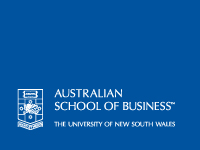|
|||||||||||||||||||||||||||||||||||||||||||||||||||||||||||||||||||||||
| Economics - 3543 | |||||||||||||||||||||||||||||||||||||||||||||||||||||||||||||||||||||||

The Bachelor of Economics (BEc) is a highly regarded professional qualification allowing graduates access to an enormously diverse range of occupations. Our graduates work as professional economists and can be found in leading government and international agencies, private firms and consultancies. Graduates who combine economics with other disciplines, such as accounting, finance or marketing, often work as professionals in those fields, with the economics training providing a highly valued understanding of the business environment. More broadly, graduates develop analytical skills which have wide applications in business, finance and policy. The knowledge obtained from the degree also enables graduates to become economically literate, with an in-depth understanding of local and world economic issues. The first year of study provides students with an introduction to economics, along with the foundations of mathematical and statistical analysis for business. Throughout the degree there is an emphasis on applications to contemporary business and economic issues. The first year of study also allows students to choose the right economics major to suit their interests and career goals. Students have the option to take a second major in economics or to choose from one of the commerce majors (such as accounting or finance) or from modern languages. For detailed information on the professional recognition this degree offers please visit Professional Recognition of Programs in the UNSW Online Handbook. From 2010 it is also possible to choose a major in mathematics or statistics, in recognition of the increasingly quantitative nature of modern business and policy contexts. In addition, there is the option to take a number of courses from a faculty other than the Australian School of Business, such as the Faculty of Arts and Social Sciences. This option provides students with a broader breadth and perspective in their knowledge and learning. Program benefits:
Program Objectives and Learning Outcomes The objective of the BEc is to develop students’:
Studies leading to the award of the Bachelor of Economics degree normally consist of 144 UOC or 24 courses to be completed over 3 academic years. These UOC need to be made up of:
Compulsory core courses account for 36 UOC (6 courses)
Please note: For students intending to complete a major in Mathematics or Statistics, MATH1131 or MATH1141 AND MATH1231 or MATH1241 should be completed instead of ECON1202 and ECON1203.
Major requirements account for up to 96 UOC (16 courses) Free options account for up to 18 UOC (3 courses). These courses should be taken from within the Australian School of Business. General Education requirements accounts for 12 UOC (2 - 4 courses) to be taken outside the Australian School of Business. These courses allow you to select either courses that were developed especially for the General Education Program (beginning with GEN) or to choose 'mainstream' courses that are offered in the degree programs of other faculties.
*Number of free options may vary depending on major combination undertaken. Please contact the Australian School of Business Student Centre for further information.
General Education Requirements Students in this program must complete 12 UOC in General Education courses or their equivalent (unless otherwise entitled to exemption). For further information about General Education Requirements please refer to the UNSW Online Handbook.
Please note that students enrolled in programs within the Australian School of Business cannot take General Education courses offered by the Business School. These restrictions also apply to the following courses:
If students are unsure of their General Education Requirements they should contact the Australian School of Business Student Centre (Ground floor, West entrance, Australian School of Business building)
Students interested in studying at Honours Level should refer to the relevant Honours plan record for entry requirements.
Please refer to the Program Structure for the academic requirements relating to this program.
Rules relating to the award of the degree of Bachelor of Commerce shall apply wherever relevant. Students are advised to consult the Academic Rules for further information. For information regarding fees for UNSW programs, please refer to the following website: https://my.unsw.edu.au/student/fees/FeesMainPage.html
For further information, refer to the Professional Recognition of Programs in the UNSW Online Handbook.
Please note that these requirements may be subject to change. Students should always follow the program requirements according to the year they started their degree. For more information please visit Previous UNSW Online Handbooks
Contact the Australian School of Business Student Centre for advice. tel: + 61 2 9385 3189 location: Ground Floor, West Wing, Australian School of Business Building Forms, policies and procedures Frequently asked questions Area(s) of Specialisation |
|||||||||||||||||||||||||||||||||||||||||||||||||||||||||||||||||||||||


